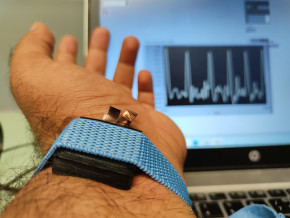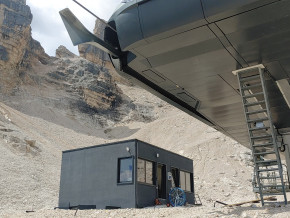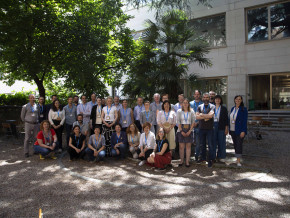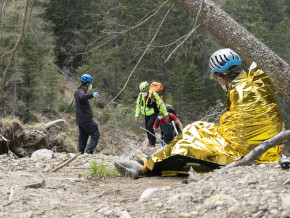Remembering to Remember
Demis Basso from the unibz Faculty of Education is looking at the development of a number of cognitive processes in children to help teachers to better evaluate their pupils. Could a child’s slower cognitive development result in poor social and scholarly performance?
Ten-year-old Suzie puts her head on her desk and peers through her fingers. She’s hoping her teacher won’t make her line up behind her classmates putting their math assignments on his desk. But clever Mr. Guenther has already seen her in the crowd. “I forgot to do it,” says Suzie sheepishly, knowing his question before he asks it. The man etches a note in his journal: it’s the third time this month. He knows he has to write to her parents about her motivation. What Guenther doesn’t know is that Suzie’s cognitive functions are developing at a different rate than her peers: it’s not that she’s unmotivated, she simply can’t remember. If he knew, would he evaluate her differently? This is what Demis Basso, a cognitive scientist at the unibz Faculty of Education, wonders. Basso wants to help schoolteachers better understand the social implications of a little-known cognitive function called ‘prospective memory.’
A Memory for the Future
“When we talk about memory,” says Basso, “we tend to think about retrieving facts or events from the past. This is called ‘retrospective’ memory. It is a cognitive function that stores information in either long-term or short-term systems. For example, ‘I remember that my mop broke yesterday.’ Prospective memory, on the other hand, is a cognitive function necessary to store plans and recall them at a specific time or when specific cues are present. ‘On the way home, when I pass through town, I must remember to stop to get a new mop.’” In other words, prospective memory is about remembering to remember. Aristotle called it a “memory for the future.” The important social impact of prospective memory piqued Basso’s interest: if a person’s retrospective memory fails, we generally perceive the person’s memory to be at fault; but if their prospective memory fails, the person is seen as unmotivated or ‘flaky.’ “The development of prospective memory is based on the functionality of the frontal lobe, which only develops completely by the age of 12 to 13,” explains Basso. “But every child develops at his or her own pace. If a child doesn’t do their homework, is it because they were unmotivated or is it simply because they forgot because their memory has not developed sufficiently?”
“Hey! Teacher!”
With the collaboration of Milvia Cottini, Basso examined prospective memory and the perception of a child’s social skills via evaluations by the child and his or her teacher.The assessment of 74 school-aged children supported the hypothesis that the children’s marks were a significant predictor of social evaluations provided by the teacher (i.e., tendency towards aggression); the lower the marks, the lower the social skills. And with prospective memory tasks and teacher evaluations, he found something every child and parent should take note of: the lower the prospective memory, the lower the marks. “The study suggests that teachers—as well as other non-specialists—are usually not able to distinguish between cognitive maturation and social skills, meaning that it is likely that prospective memory skills are one of the factors that affect a child’s grades and social behaviour.” It’s not that teachers have to change the way they teach, underlines Basso, but rather they should pay attention to the ability of the child to complete that task and propose different strategies. “If you know a child is weak in the prospective memory process, you must take more care about the way you give the tasks. Otherwise, we might incorrectly assess the child as unmotivated, which creates its own kind of social stigma. It is really important to understand more about cognitive processes and how they can be used to improve our on-the-job performance. ”
Related Articles

Tecno-prodotti. Creati nuovi sensori triboelettrici nel laboratorio di sensoristica al NOI Techpark
I wearable sono dispositivi ormai imprescindibili nel settore sanitario e sportivo: un mercato in crescita a livello globale che ha bisogno di fonti di energia alternative e sensori affidabili, economici e sostenibili. Il laboratorio Sensing Technologies Lab della Libera Università di Bolzano (unibz) al Parco Tecnologico NOI Techpark ha realizzato un prototipo di dispositivo indossabile autoalimentato che soddisfa tutti questi requisiti. Un progetto nato grazie alla collaborazione con il Center for Sensing Solutions di Eurac Research e l’Advanced Technology Institute dell’Università del Surrey.

unibz forscht an technologischen Lösungen zur Erhaltung des Permafrostes in den Dolomiten
Wie kann brüchig gewordener Boden in den Dolomiten gekühlt und damit gesichert werden? Am Samstag, den 9. September fand in Cortina d'Ampezzo an der Bergstation der Sesselbahn Pian Ra Valles Bus Tofana die Präsentation des Projekts „Rescue Permafrost " statt. Ein Projekt, das in Zusammenarbeit mit Fachleuten für nachhaltiges Design, darunter einem Forschungsteam für Umweltphysik der unibz, entwickelt wurde. Das gemeinsame Ziel: das gefährliche Auftauen des Permafrosts zu verhindern, ein Phänomen, das aufgrund des globalen Klimawandels immer öfter auftritt. Die Freie Universität Bozen hat nun im Rahmen des Forschungsprojekts eine erste dynamische Analyse der Auswirkungen einer technologischen Lösung zur Kühlung der Bodentemperatur durchgeführt.

Gesunde Böden dank Partizipation der Bevölkerung: unibz koordiniert Citizen-Science-Projekt ECHO
Die Citizen-Science-Initiative „ECHO - Engaging Citizens in soil science: the road to Healthier Soils" zielt darauf ab, das Wissen und das Bewusstsein der EU-Bürger:innen für die Bodengesundheit über deren aktive Einbeziehung in das Projekt zu verbessern. Mit 16 Teilnehmern aus ganz Europa - 10 führenden Universitäten und Forschungszentren, 4 KMU und 2 Stiftungen - wird ECHO 16.500 Standorte in verschiedenen klimatischen und biogeografischen Regionen bewerten, um seine ehrgeizigen Ziele zu erreichen.

Erstversorgung: Drohnen machen den Unterschied
Die Ergebnisse einer Studie von Eurac Research und der Bergrettung Südtirol liegen vor.
